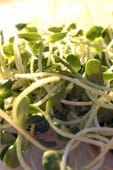Old man winter is right around the corner and as usual the lovely geese of Manitoba begin their trek south to avoid the ridiculous temperatures of Winnipeg. No I’m not bitter, just a touch cool from my brisk morning rides to work on my scooter. Being jealous of the geese I was reminded this morning about food safety tip number 2. Avoid eating poop. Geese fecal matter or animal fecal matter contain pathogenic organisms such as E. coli and Salmonella. Geese really don’t care where they do their business which means it could be getting into your fruits and vegetables. Studies have also shown that Salmonella can survive in the soil for up 900 days and can also survive in fruits and vegetables (1). Washing your fruits and vegetables at this point will be ineffective.
I remember when I was a young lad in Edmonton, Alberta performing water quality testing for the triathlon games. The athletes were to use a man-made lake for the swimming portion of the event. The lake was consistently bombarded with E.coli due to the overwhelming number of surrounding geese. If poop can get into the water, it can get into your gardens as well. Foodborne illnesses associated with fruits and vegetables have been increasing. This increase is partly due to higher consumption of such products to satisfy a healthy diet, better reporting, and changes in production practices (2). It is important to think about where your food is coming from (farm-to-fork chain) and the potential sources of contamination, one being animal droppings. As a consumer, there is very little one can accomplish in reducing bacterial loads with certain types of vegetables, one being sprouts for instance. Pathogens can exceed10 7 per gram of sprouts without affecting its appearance (3). It is for this reason that the young, old, immunocomprised, and pregnant women should avoid raw sprouts.
.jpg)
1. Charpentier, Heribert Hirt. The Dark Side of the Salad: Salmonella typhimurium Overcomes the Innate Immune Response of Arabidopsis thaliana and Shows an Endopathogenic Lifestyle
2. Risk Profile on the Microbiological Contamination of Fruits and Vegetables Eaten Raw. Report of the Scientific Committee on Food (adopted on the 24th of April 2002). European Commission, Health and Consumer Protection Directorate- General.
3. Taormina PJ, Beuchat LR, Slusker R. 1999. Infections associated with eating seed sprouts: An international concern. Emerg Infect Dis; 5: 629-634.


.jpg) Oh, and I’m to stress that it is only alfalfa sprouts making people barf, or at least that’s what industry told the FDA during a conference call yesterday afternoon. Not sure why it took FDA over 24 additional hours to warn consumers but …
Oh, and I’m to stress that it is only alfalfa sprouts making people barf, or at least that’s what industry told the FDA during a conference call yesterday afternoon. Not sure why it took FDA over 24 additional hours to warn consumers but ….jpg) CDC, FDA and six State and local authorities have associated this outbreak with eating raw alfalfa sprouts. Michigan, Minnesota, Pennsylvania, South Dakota, Utah, and West Virginia have reported 31 cases of illness with the outbreak strain of Salmonella Saintpaul to CDC. Most of those who became ill reported eating raw alfalfa sprouts. Some reported eating raw sprouts at restaurants; others reported purchasing the raw sprouts at the retail level.
CDC, FDA and six State and local authorities have associated this outbreak with eating raw alfalfa sprouts. Michigan, Minnesota, Pennsylvania, South Dakota, Utah, and West Virginia have reported 31 cases of illness with the outbreak strain of Salmonella Saintpaul to CDC. Most of those who became ill reported eating raw alfalfa sprouts. Some reported eating raw sprouts at restaurants; others reported purchasing the raw sprouts at the retail level.
.jpg)
 J.H. Caldwell and Sons of Maywood is recalling Always Fresh and Alfa One sprouts distributed to Trader Joes grocery stores in California, Arizona, New Mexico, Nevada, Oregon and Washington. It also is recalling shipments to Beach Market, KV Mart and Superior Warehouse stores in California.
J.H. Caldwell and Sons of Maywood is recalling Always Fresh and Alfa One sprouts distributed to Trader Joes grocery stores in California, Arizona, New Mexico, Nevada, Oregon and Washington. It also is recalling shipments to Beach Market, KV Mart and Superior Warehouse stores in California.